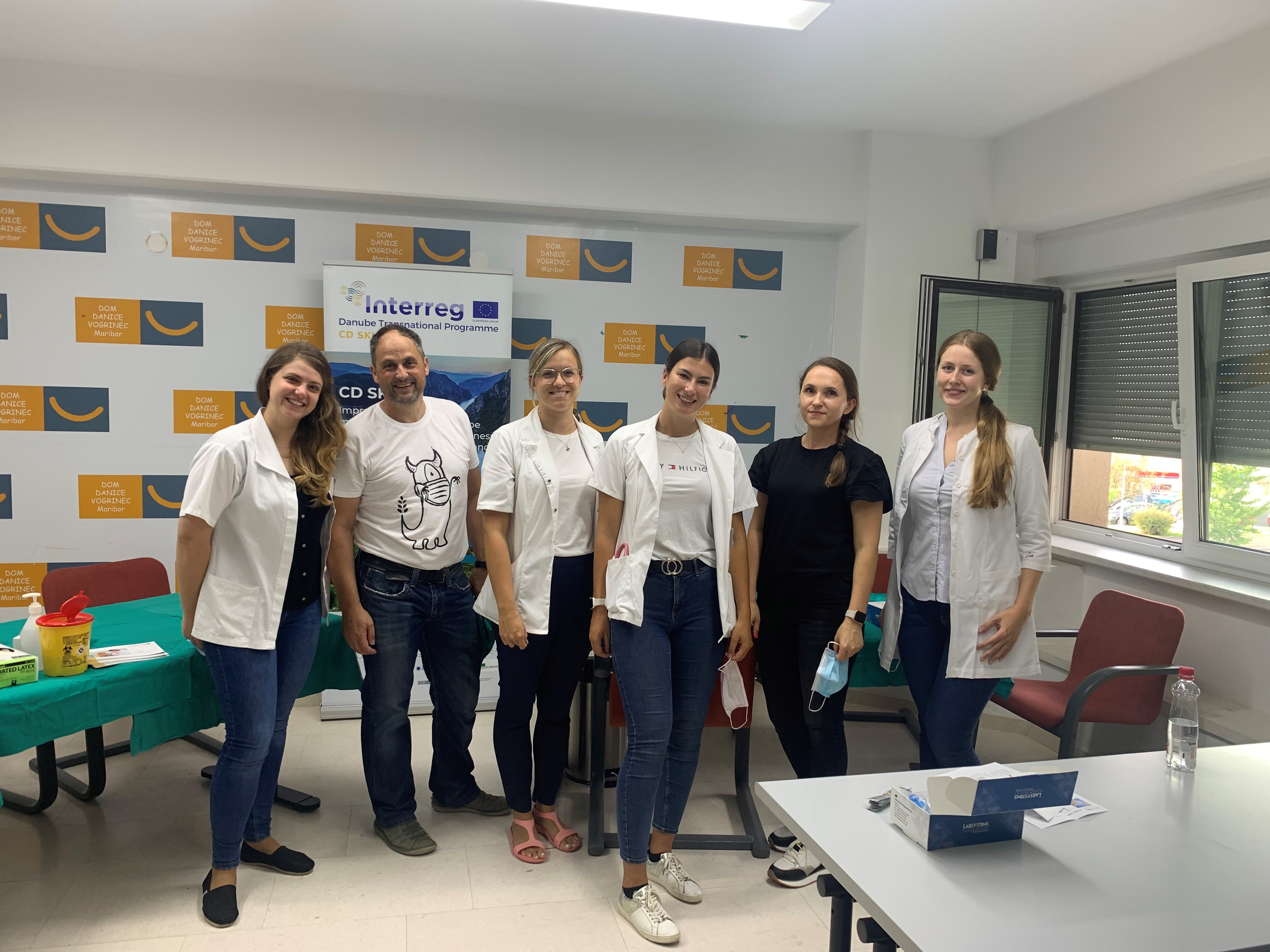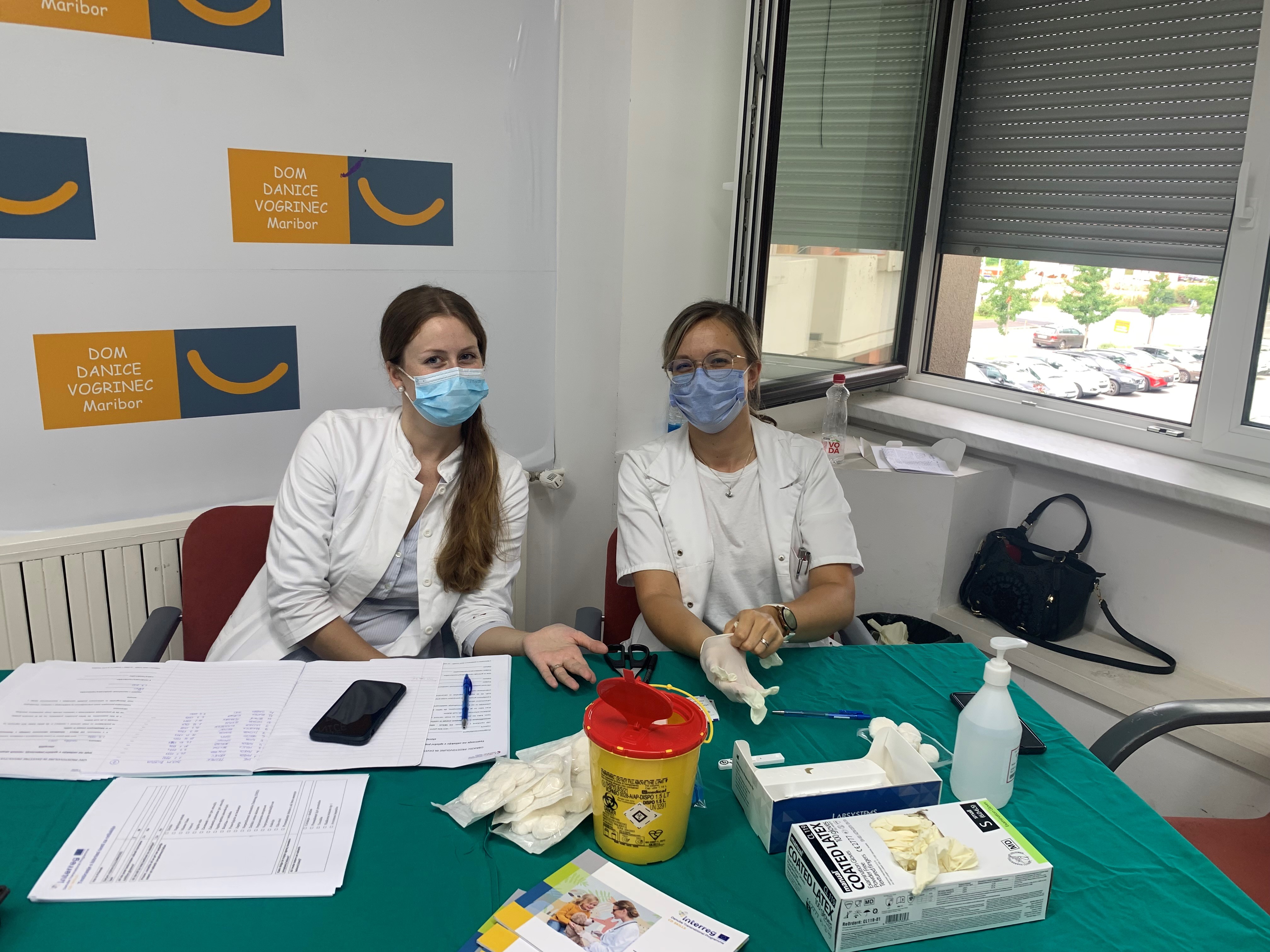Bridging Knowledge Gaps: An Interview with Jernej Dolinšek, Leading the CD Skills Project for Coeliac Disease Management
22-09-2023
Three years ago, the CD Skills project embarked on a comprehensive journey that merged research, education, and international cooperation to address the complex challenges surrounding coeliac disease. At the helm of this transnational initiative is Jernej Dolinšek, Associate Professor of Pediatrics at the University Medical Centre in Maribor, Slovenia. Through meticulous analysis and dedicated efforts, the project unearthed startling revelations about the state of coeliac disease management, illuminating the need for a robust and holistic approach. In this interview, we gained a deeper understanding of the far-reaching impact of the CD Skills project on healthcare practitioners as well as patients, and how it managed to improve the coeliac disease management not only in the Danube region but also across the globe.
September 18, 2023

Jernej Dolinsek, MD, PhD is standing second from the left.
1. HOW HAVE THE PROJECT RESULTS BEEN USED?
Overall, the project had a multifaceted approach, combining research, education, and collaboration to enhance coeliac disease management in the Danube region and beyond. The project started with an analysis of the current state of coeliac disease management in the Danube region, involving different countries. The results revealed significant gaps in knowledge and management practices within the region. There was a disconnect between what healthcare professionals were expected to know and what they actually knew about coeliac disease. Surprisingly, patients also had limited knowledge about their own disease, which hindered their ability to self-assess and adhere to treatment, particularly a gluten-free diet. The findings indicated that patient needs were substantial, and they were generally dissatisfied with the available medical care and gluten-free products, affecting their quality of life.
Based on these results, the project worked on enhancing knowledge and tools for healthcare practitioners and patients. This involved updating e-learning resources, creating brochures, and improving diagnostic and follow-up tools for early and accurate recognition of coeliac disease. Several of these tools had initially been developed in previous projects funded under Interreg Central Europe but were now introducing new knowledge and were expanded to new languages due to the inclusion of new project partners. The languages now include English, Slovenian, Croatian, Italian, German, Hungarian, Czech, Romanian, Serbian, and a Bulgarian version in progress. An exchange platform was also established for healthcare practitioners to share patient stories and information on the best practices for managing patients with coeliac disease.
The project disseminated its findings at various conferences, receiving positive reception beyond the Danube region. This led to the initiation of a significant international project involving many European centers and countries like New Zealand, Australia, the US, and Canada. In my opinion, the dissemination is crucial or the project results get lost otherwise. That's how we improve the knowledge, and improved knowledge is one of our most important result.
The project started with an analysis of the current state of coeliac disease management in the Danube region, involving different countries. The results revealed significant gaps in knowledge and management practices within the region.
2. WHAT WERE THE MAIN OUTPUTS OF THE PROJECT IN SLOVENIA?
(maybe it is possible answer by expanding the part mentioned in the answer to the first question about results, to give some examples from Slovenia):
Several project outputs are very important for Slovenia. One is for sure a good insight into current management practice and knowledge about celiac disease. However more important are several publications, including a textbook for students who will be future healthcare providers and workshops where catering service providers gained important knowledge on how to prepare safe gluten free products for celiac disease patients. Very important outcome of the project is also the initiation of an international project on state of the art in celiac disease management called "CD in Focus" that is led by the team from Maribor, where countries form around the World are using the tools developed in the Danube region are used.
3. HAVE THE PROJECT RESULTS INFLUENCED POLICY DECISIONS OR LED TO ANY CHANGES IN THE FIELD?
The project has not only generated valuable data but has also actively contributed to policy changes and improvements in the medical field. These changes encompass guidelines, and practical approaches that are being adopted by healthcare professionals, leading to a positive impact on patient care and healthcare efficiency. In Slovenia, Ministry of Health, also based on the activities of the project, is currently adopting a new legislation where it will define reimbursement scheme for adult patients with celiac disease who until now have not been entitled to any institutional incentives.
We have been presenting our project's data to a wide array of professionals who are adopting them. Even if these changes are not yet formalized in legislation, they are being implemented in practice. Having project partners within decision-making bodies at the EU gastroenterology level, for example, allows for a direct channel to propose and advocate for changes based on the project's findings.
In Slovenia, Ministry of Health, also based on the activities of the project, is currently adopting a new legislation where it will define reimbursement scheme for adult patients with celiac disease who until now have not been entitled to any institutional incentives.
4. WAS THERE ANY RESISTANCE OR CHALLENGES IN INCORPORATING THE PROJECT RESULTS INTO THEIR WORK?
We had solid proof that there are shortcomings in the system, so there was no resistance. Quite contrary, I would say there was enthusiasm in up-taking results of our project in the medical field.
5. WHY DO YOU THINK INTERNATIONAL COOPERATION IS NECESSARY AND IMPORTANT FOR THE TOPIC YOU WERE SOLVING IN THE PROJECT?
International cooperation was undeniably crucial for the success of our project. Throughout our collaboration with partners from various countries, we gained invaluable insights into their realities. It's remarkable how different approaches and challenges can be across different countries and regions. This diversity is important because it fosters a dynamic exchange of knowledge and best practices, enabling us to avoid the pitfalls and mistakes that others have encountered. Furthermore, our partners complemented each other brilliantly. While one excelled in results dissemination, another brought extensive clinical expertise to the table.
One of the most significant benefits of this international cooperation was the ability to gather region-specific results. The project's discovery of shorter time intervals from first symptoms to diagnosis in the Danube region compared to other global regions is a crucial point. These findings have allowed us to share our knowledge with other parts of the world and this global reach has significantly increased the visibility of our region, which sometimes tends to be overshadowed by more developed Western or Nordic countries. Moreover, this collaboration has established a robust network for future initiatives that may arise from this network.

Testing for Celiac disease during project pilot.
